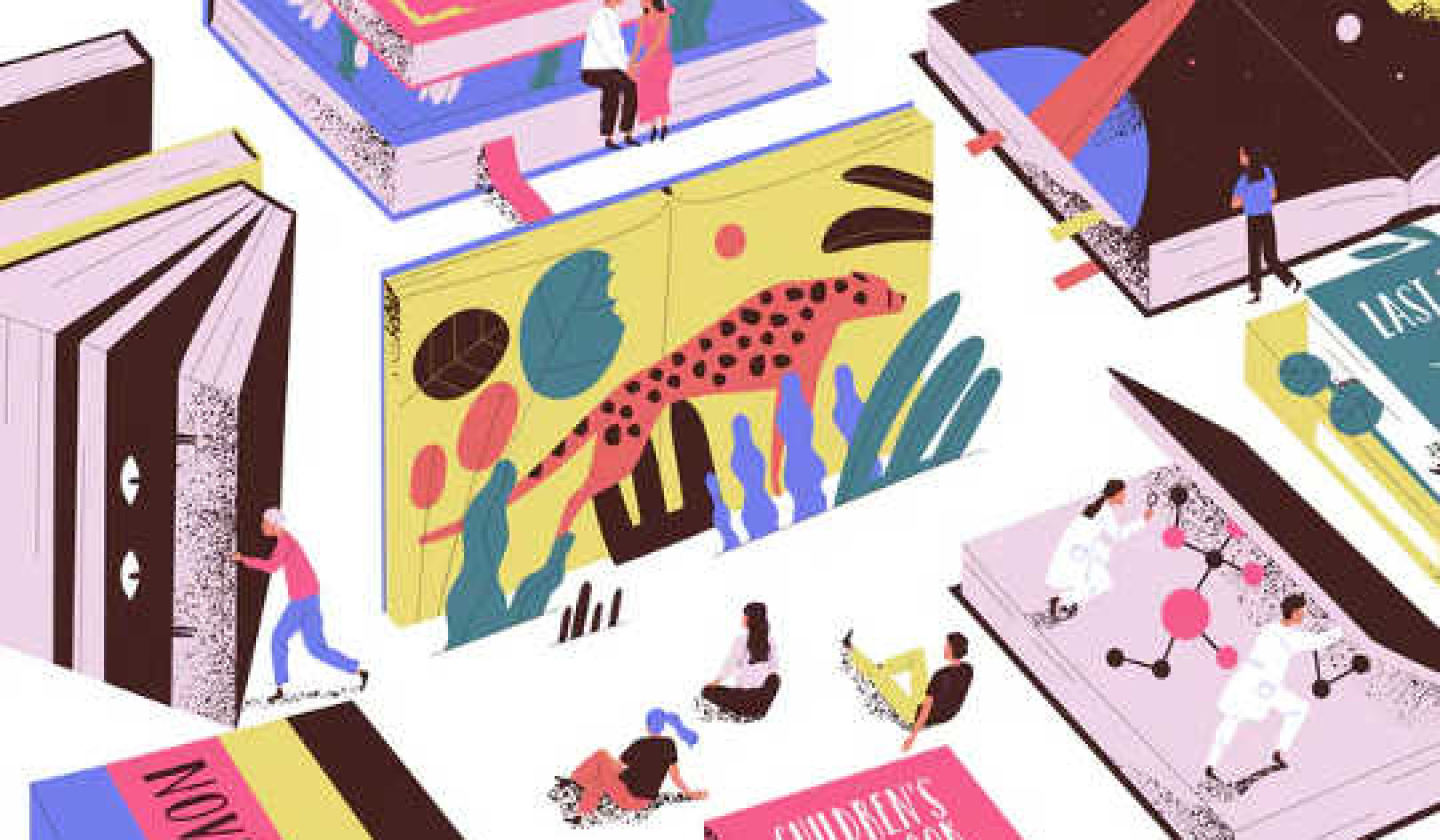
The angel of death striking a door during the plague of ancient Rome. Engraving by J.G. Levasseur after J. Delaunay. Image via Wellcome Collection, Creative Commons.
Are you finally ready to listen to me now? If so, here are my 10 timeless truths.
Audi, vide, tace (Hear, see, be silent.). I have been trying to engage you in conversation for more than a year, but you have not listened.
Perhaps you don’t want to grasp the truths I have to offer. They are gifts really, but I know you will never see my generosity in that light. Such fear. Such ignorance. Ad altiora tendo (Try harder).
But I am bound by ancient oaths and I must deliver these few plain lessons as I have faithfully done for thousands of years.
I read confusion on your face.
Did you think that I would speak with the rage of Moses, the indignation of Isaiah?
Or did you think I would appear in Marvel cape on a TikTok video?
Did you expect me to play chess with your armoured ego like Death in The Seventh Seal?
No matter. Let me start my instruction by reminding you of my curriculum vitae. I earned it at the finest university: the diversity of life over the history of time.
For millennia, I have laboured in the natural world, imposing limits and borders in places you seek to globalize with your technologies and economies. Do you really think the world will be more secure when bits of plastic outnumber fish?
I have but one non-linear mission, and that is to celebrate and restore diversity.
Your rising and falling civilizations cultivate fragility, and that is simply the way of things. While you seek to build great walls of stability, I bring volatility. This tension explains why we collide like two rams on the mountain of history.
Unlike you, nature respects my purpose-driven existence.
You should know that I haunted the streets of Athens with measles. I watched Pericles die. I destabilized Rome and the Song dynasty. I humbled the Pharaohs, and killed peasants in the 14th century like hail on wheat. I wept with satisfaction during the siege of Tenochtitlan as my smallpox outdid itself. I dogged Napoleon’s shivering armies with typhus. I violated England’s working classes with the blue death, cholera. I killed essential workers on the Panama Canal with yellow fever. I visited the trenches of the First World War with influenza. You’ve carried on with your great and complex ambitions, and I have laid them low.
Need I go on with tales of Ebola, HIV and SARS?
I am an eternal force of history, and, let’s be honest, you are not. Memento mori. (Remember death.)
I. The Interruption
Now, I understand that your attention span is limited, impaired by screens and gadgets and other silliness. Your kind can only comprehend things if they are reduced to lists and memes and tweets.
And that brings me to my first point.
It is simple really. You are living in my time, liminal time, the time betwixt and between; the time passing between fate and hazard; the time between catastrophe and renewal. Beginnings and endings. Life and death.
You haven’t yet appreciated the meaning of this solitude. It is the day you walk out of your convenient house of mechanical habits and tumble into a circus of uncertainty on a road where my horsemen patiently wait.
It is crazy time. Frozen time. Delusional time. Some call it judgement time.
In any case it is my time, and I have snared you. You can steep in your anxiety or reflect on the disorder in your life. You can yearn for normal or want to change what is normal. It is your choice, and your choice only, what to do with plague time.
I for one care not. Just know this. Though many of you have already let your masks down, heed my warning. My time is not yet done.
II. The Pruning
My second truth concerns the importance of viruses, one of my most abundant and faithful servants. Small is beautiful, is it not?
This magnificent kingdom dwells everywhere and governs vast microbial populations in the ocean. With no regal fanfare my viruses maintain the health of this planet. You cannot even count, let alone name them. Every day, millions of viruses fall from the atmosphere like invisible stars on each square foot of your engineered Earth. Take a spoon and dip it in the ocean, and you will hold in your insignificant hand millions of viruses capable of changing your world to the core.
And what great works they provide. Did you know that my viruses help to move carbon dioxide from shallow waters into the depths? No. What do you know of my world? You don’t even know that eight per cent of your DNA is viral in origin or that your gut is alive with viruses that police the bacteria that nourish your brain.
But here’s my point. Viruses kill the winners. They spread rapidly among dense populations of prey whether they be ocean bacteria, feral rabbits or urban people. Evolution and competition of course play a role. All in all, my viruses diligently liberate resources so diversity can be restored. They invariably shame civilizations that have grown careless with their concentrated monocultures and endless migrations.
You belong to the virome as much as my COVID does, though your arrogance blinds you from such acknowledgement. For that is my purpose. I prune populations that have grown heavy like overripe apples on unpicked trees. I write history. I shrink cities. I reduce trade. I impoverish tax rolls. I humble aspiration. Sometimes, I wipe the slate clean; sometimes I just winnow concentrations of prey, like a cat toying with mice.
III. The Exploited
This next item makes me laugh and roll my eyes. My forces are not democratic. Never have been and never will be. I can be as indiscriminate as hell, but never democratic. Ego te provoco. (I dare you.)
Show me a pandemic that equally afflicted the rich and the poor. I know. I have not made one. Your kind underestimates my unprogressive nature, which holds but a mirror to the flaws of your social relations.
My coronavirus has struck down the usual victims: the poor; immigrants who must work of a living; people of colour burdened with disease because they have no access to health care. People incarcerated in buildings like cattle in feedlots. It never ceases to amaze me how you concentrate people and animals in the name of efficiency, heedless of the inevitable biological price to pay.
The reality is this. Pandemics like myself don’t create inequalities. We merely exploit them and play with the opportunities.
IV. The Overshoot
You will never believe this next lesson, but you truly command me. Your desperation fuelled mass migrations, your self-important three billion air travelers, your relentless destruction of forests; your ceaseless preoccupation with urban expansion; your extension of life from 30 to 80 years (and for what I boldly ask?); your eight billion denizens; your persistent violence against all living things… such behaviour just makes me possible if not necessary.
Do you think your kind can just keep growing forever? Not even bacteria live such a fiction.
Maybe you should have listened to that German economist who said, “Man makes his own history but not always as he pleases.” Well, that’s me, a cultivator of displeasure.
Your overshoot is of another dangerous nature. Your future is no longer a reflection of your past, because you do not understand the dynamics of complexity in your own networked universe, let alone mine.
Since my last truly memorable visit in 1918 with my Spanish Flu (and it wasn’t Spanish, but no matter), you have made the world more connected and more complex with your machines and systems. You never bothered to calculate how steam ships could transform influenza from a regional delight to a global scourge, did you? Let me thank you again for that splendid innovation.
Every day you multiply this hazard. Every time you add another airplane route to a finite planet you accelerate the speed of my viral servants. All seems stable until your complexity brings down the house with a well-transported contagion on every doorstep.
You no more have the ability to think about complex systems and the dynamics of risk than poor Montezuma did when Cortez stumbled into Mexico with a crazy appetite for gold. You have designed a world where multiple things can go wrong setting off one avalanche after another, delivering a cascade of unpredictable consequences.
Disaster no longer falls on a single empire but an entire species. Perhaps you do not fear extinction?
V. The Cycle
Are you still listening? Have you put away your cell phone? Good. I have more to share.
My next lesson is this. I pay no heed to your cult of linear achievement, the bricks laid upon each other higher and higher, the graphed progress edging upwards always. History can no more walk a straight line than a group of drunken sailors on leave in the sunny port of Alexandria. Officials in Rome and the Han dynasty forgot the cyclical nature of life. They, too, never saw the end coming.

‘While you seek to build great walls of stability, I bring volatility.’ A 1625 illustration of Londoners fleeing the plague. Source: New York Public Library.
When I appear, I pick my time carefully. I enter the picture when your elites lose their consensus, grand empires reach a border too far, institutions lose their practicality, refugees clog the byways and the climate changes. You may remember my COVID as the beginning of several long emergencies. Or you may watch Netflix instead.
VI. The Reckoning
Your vulnerability is a product of your hubris. Think of me, this fine pandemic, as a Mongolian cavalry probing the defenses of an overconfident Chinese city. Even after SARS and Ebola (you can’t say I didn’t provide a fair warning), I marvelled at your porous defenses. All about my feet I found a global tableau of disbelief, denial and timidity.
Almost everywhere I ventured, I found the powerful unprepared and inattentive. I moved through open borders and took advantage of overextended supply chains. I found politicians who minimized me as another “flu.” Your leaders actually believed that they could muddle through an extreme event with impunity.
Everywhere I probed, I discovered familiar vulnerabilities. I found a stubborn resistance to act quickly and a denial of the exponential function. I found the precautionary principle abandoned like an orphan on the Silk Road. I found an expert class reluctant to don masks or to consider the dominance of aerosol transmission. I found democracies who stupidly elected to fight a viral fire in their hospitals instead of in their communities or at their borders.
In sum, I found inept bureaucracies incapable of managing catastrophic risk led by a callous political elite that prized money more than workers. What a marvelous and entirely predictable reception!
And your World Health Organization, which acted with the speed of a tortoise and abetted my success, now writes reports dripping with self-importance: “COVID-19: Make It the Last Pandemic.” How often have I heard this sentiment over the ages, after every pandemic?
VII. The Pandemonium
It is not possible to have a pandemic without pandemonium. Whenever I descend like frost on a ripe crop of grapes, conspiracies, racism and fear will be the harvest. The proliferation of anti-maskers and anti-vaxxers has seemingly caught you by surprise. Shake your head: uncertainty breeds an army of fears greater than the war chariots once drawn across the plains of China.
Let me tell you a story. During the Black Death, your rumour mills identified Jews as the cause of the plague and accused them of poisoning water wells. (Imagine what mischief your internet would have done?)
Many of your authorities including the Pope denounced these rumours as lies. But did that stop people from burning Jews in synagogues or forcing them to migrate to Eastern Europe where another Holocaust awaited them seven centuries later? No, it did not. Pandemics do not breed reason any more than your crude materialism nourishes prudence.
Stay a bit longer. My list now grows short. Have I disturbed your solitude? Are you feeling well?
VIII. The Politicians
Politics makes a pandemic big or small. Every outbreak is political, and it has always been thus. Did you really expect your political leaders to exercise the precautionary principle in the face of a biological storm? That has rarely been my experience.
Your leaders scoffed at what needed to be done, because they deemed such responses extreme. They could not imagine how small individual risks could rapidly amplify into collective tragedies. And so they moved like molasses to limit mobility, and then acted like a spring melt to open things up again, providing me with the advantage time and time again. They all thought they could turn me off like some computer game.
My gratitude for such ineptness is truly boundless. Where would I be without enablers like Trump, Modi and Bolsonaro? They turned a minor pandemic into a beast with a very fat tail. And you thought pandemics were apolitical? Never.
IX. The Producers
My origins have been the subject of much speculation, and most of your expert classes suspect a natural spillover from bats. (For the record, I have always been your scapegoat since your agrarian and urban ways unleashed pestilence.) But have you considered an accidental release from the very laboratories designed to control my loyal servants, bacterial or viral? It has happened before, and will happen again.
Your kind has learned to manufacture your own plagues whether by design or accident. In recent decades, your scientists have tried to boldly outcompete me by engineering viruses and bacteria for warfare or, so you say, to better protect the public health. With the best of intentions, you have made some of my notable servants more virulent and deadly to anticipate how they might behave in your engineered spaces. You have made chimeras that even I could not contemplate in the darkest night.
Listen: the narratives of escaped pathogens are legion, and I, for one, can’t keep track of them all. In the 1970s, my smallpox, which had killed billions, spilled from two accredited labs in three separate escapes. Anthrax leaked from the sewers and air ducts of biological labs in Russia killing hundreds. Inactivated vaccines for Venezuelan equine encephalitis caused outbreaks they were supposed to prevent, and for decades.
In 2003, SARS escaped not once but six times from labs in Singapore, Taiwan and Beijing.
When you next, again, fly too close to the sun, will you bring a devastating fire to all of your planet?
X. The Opportunity
Finally, decem numero (number ten). Pandemics are not a problem; nor am I, strictly speaking, some kind of grand solution. I do not salve wounds. I do not answer to God. I will not prepare you for the Rapture. I do not punish, and I do not reward. Nor will I end your rampant inequalities. I do not break societies; I only make visible what is already broken.
But I will rub my wandering finger in your societal lesions and improprieties. I will illuminate fragility and accelerate trends long in motion. And this explains why your rich have gotten richer, and why your technologies now exercise greater control over your societies than my coronavirus ever will. (Yet, you rallied against masks while waving cell phones in the name of liberties long lost.)
And yet. I once told the Florentines that trauma is both a gift and opportunity. If difficulty is a light, an insurmountable difficulty can be a sun.
The Black Death upended the world of the Florentines and mightily reduced their numbers. And how did the Florentines respond to mass death and a shortage of hands? With great creativity and new visions. They opened their society to change and filled the ranks of the dead with new faces. You called it the Renaissance.
My COVID-19, on the other hand, is a minor pandemic, a small disrupter. A rupture to be sure, but nothing like my Black Death. But do you think that I have stopped your world so you can daily complain about lockdowns and shortages of toilet paper and computer chips? No. I am here, present and alive, so you can take stock, make amends, and pay attention to what matters.
Whether there will be a renaissance in your future depends not on how much knowledge your society has manufactured. Rather, it rests on how much wisdom you have cultivated.
Do you have even the wisdom of the Florentines? Does my skepticism show?
Until we meet again — and that event is assured — invictus maneo (I remain unconquered).
Copyright 2021. All Rights Reserved.
Reprinted with permission of the publisher, The Tyee,
an independent, online news magazine (B.C., Canada)
.
Book by this Author
Pandemonium: Bird Flu, Mad Cow, and Other Biological Plagues Of The 21st Century
by Andrew Nikiforuk
 Our health and habitat are being threatened by biological invaders moving at unprecedented speed. Avian flu and its potential to cause a human pandemic is only one example of a worldwide menace unwittingly unleashed by the forces of globalization. The combination of unfettered free trade in living organisms, increased mobility, and urban crowding has created an increasingly volatile environment for the world’s 6.5 billion people. Nikiforuk argues that it shouldn’t take a pandemic to make us rethink the deadly pace of globalization and biological traffic. Authoritative and wide-ranging, Pandemonium is a clear-eyed guide to instability, unpredictability, and the hidden biological terrorist on our doorstep.
Our health and habitat are being threatened by biological invaders moving at unprecedented speed. Avian flu and its potential to cause a human pandemic is only one example of a worldwide menace unwittingly unleashed by the forces of globalization. The combination of unfettered free trade in living organisms, increased mobility, and urban crowding has created an increasingly volatile environment for the world’s 6.5 billion people. Nikiforuk argues that it shouldn’t take a pandemic to make us rethink the deadly pace of globalization and biological traffic. Authoritative and wide-ranging, Pandemonium is a clear-eyed guide to instability, unpredictability, and the hidden biological terrorist on our doorstep.
For more info and/or to order this book, click here.
About the Author
 Andrew Nikiforuk has been writing about the oil and gas industry for nearly 20 years and cares deeply about accuracy, government accountability, and cumulative impacts. He has won seven National Magazine Awards for his journalism since 1989 and top honours for investigative writing from the Association of Canadian Journalists.
Andrew Nikiforuk has been writing about the oil and gas industry for nearly 20 years and cares deeply about accuracy, government accountability, and cumulative impacts. He has won seven National Magazine Awards for his journalism since 1989 and top honours for investigative writing from the Association of Canadian Journalists.
Andrew has also published several books. The dramatic, Alberta-based Saboteurs: Wiebo Ludwig’s War Against Big Oil, won the Governor General’s Award for Non-Fiction in 2002. Pandemonium, which examines the impact of global trade on disease exchanges, received widespread national acclaim. The Tar Sands: Dirty Oil and the Future of the Continent, which considers the world’s largest energy project, was a national bestseller and won the 2009 Rachel Carson Environment Book Award and was listed as a finalist for the Grantham Prize for Excellence In Reporting on the Environment. Empire of the Beetle, a startling look at pine beetles and the world’s most powerful landscape changer, was nominated for the Governor General’s award for Non-Fiction in 2011. And Slick Water: Fracking and One Insider’s Stand Against the World’s Most Powerful Industry, won the 2016 Science in Society Journalism Award.
Visit his website at AndrewNikiforuk.com/
























